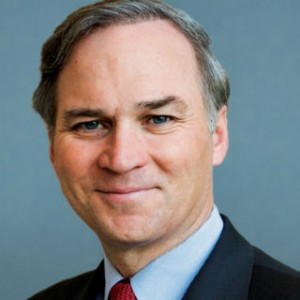
These communities are as beautiful as they are unique. Take a stroll through the Boardwalk Shops at Smithfield Station, stop for buttermilk biscuits at the Virginia Diner in Wakefield, or venture down Rt. 58 to view some of the historic architecture in downtown Emporia and Greensville County, and no matter where you hail from, you are certain to feel at home. These are places where passersby greet each other by first names and where a sense of trust remains throughout the small town streets and neighborhoods. These are the communities where main street still exists.
Our rural communities are remarkable for their commitment to one another and for their strong self-reliance. I am always encouraged by their duty to family, hard work, and community. On many occasions, I have watched as the citizens of our smaller localities in the 4th district have come together to help each other in a wonderfully connected and close-knit way, whether in times of hardship as they respond to a natural disaster, or in times of celebration.
But even amidst the idyllic rural setting, there are unique challenges and barriers that come with living in small town America. Those of us who live there know them all too well.
Rural America faces significant barriers to available healthcare providers and timely access to care. Rural hospitals are trying to stay afloat at a time when hospital funding continues to find itself on the chopping block. The web of hospitals and providers that rural communities rely on often need greater access to emergency medical devices, new technology, and improved facilities in order to better serve their communities. Residents of rural communities face transportation barriers, traveling great distances for care.
Rural America’s economies rely on small business and self-employment. Independent businesses and owner-operated farms – many of which are family owned and have been around for decades – feel the pressure of big box retailers. Rural towns regularly rely on independent pharmacies, especially as chain pharmacies are not readily available. Yet, these businesses often have a difficult time accessing new technology, improved infrastructure, and capital. They often bear the brunt of national economic challenges.
Rural roads and infrastructure are often in need of repairs, as they get bumped for more high-traffic corridors in urban areas. Likewise, rural areas sometimes face higher energy costs because of aging infrastructure, as well as difficulties in updating energy infrastructures because of the distance between customers.
Rural America’s needs are as unique as its way of life. Especially in times of economic uncertainty, as well as in our changing society, we need to ensure our rural communities are well-equipped for the future. Throughout my time in Congress, I have made it a priority to partner with our rural communities to help provide the resources they need to meet these challenges. As a member of the Congressional Rural Caucus, I join with other members of Congress to ensure a voice for rural communities and work toward educating others on the constantly changing face of rural America. The goal of the Congressional Rural Caucus is to jumpstart initiatives to rejuvenate rural communities struggling under today’s difficult economic conditions.
Here are some steps I believe will support the agriculture industry and enable our rural communities to flourish:
Reduce regulations and EPA mandates. It’s time to cut the red tape and foster an environment that allows businesses and farms in our rural communities to thrive and grow. Tightly controlled regulations by the Environmental Protection Agency (EPA) are often duplicative and costly, and they have a disproportional impact on our farmers and the small businesses and manufactures in small, rural communities, who often lack the resources necessary to comply with the burdensome regulations. I’ve cosponsored legislation to ease these EPA regulations. Additionally, I’ve long supported efforts to reduce burdensome regulations across the board, such as the REINS Act (H.R. 367), which would require congressional approval of all major regulations that have an economic effect of at least $100 million.
Maintain roads and infrastructure. I introduced the 414 Plan Act of 2014 (H.R. 4153) to accelerate necessary construction and improvements to our nation’s roads and bridges, including the rural roads and infrastructure that often get choked by other projects.
Lower energy costs. I have long supported an all-of-the-above energy strategy to help lower energy costs and create energy independence, goals that would greatly benefit our rural communities. My legislation, the New Manhattan Project for Energy Independence, challenges the United States to reach 50% energy independence in ten years, and 100% energy independence in 20 years through the establishment of seven energy goals. The goals would ultimately lower energy costs for consumers.
Make the tax code simple. The complexity of the current tax code places a heavy burden on small businesses and family farms, the backbone of our rural communities, which greatly impacts their effectiveness and productivity. I have consistently pushed for a simpler, fairer tax code – including establishing an optional flat tax and reforming the entire tax code.
Encourage the development of community health centers. Community health centers help meet the healthcare needs of medically underserved populations like rural communities. I have long supported this healthcare model, and have worked to provide resources to encourage physicians and nurses to serve in community health centers.
In a way, rural America represents the backbone of American values. For years, they’ve led our nation in a commitment to family and community, a desire to build and pass on to one’s family, a love for our environment and countryside, and a resolve to work hard and succeed. Let’s empower our small towns and rural communities to continue to lead the way.
Randy Forbes represents the fourth district in Congress.










